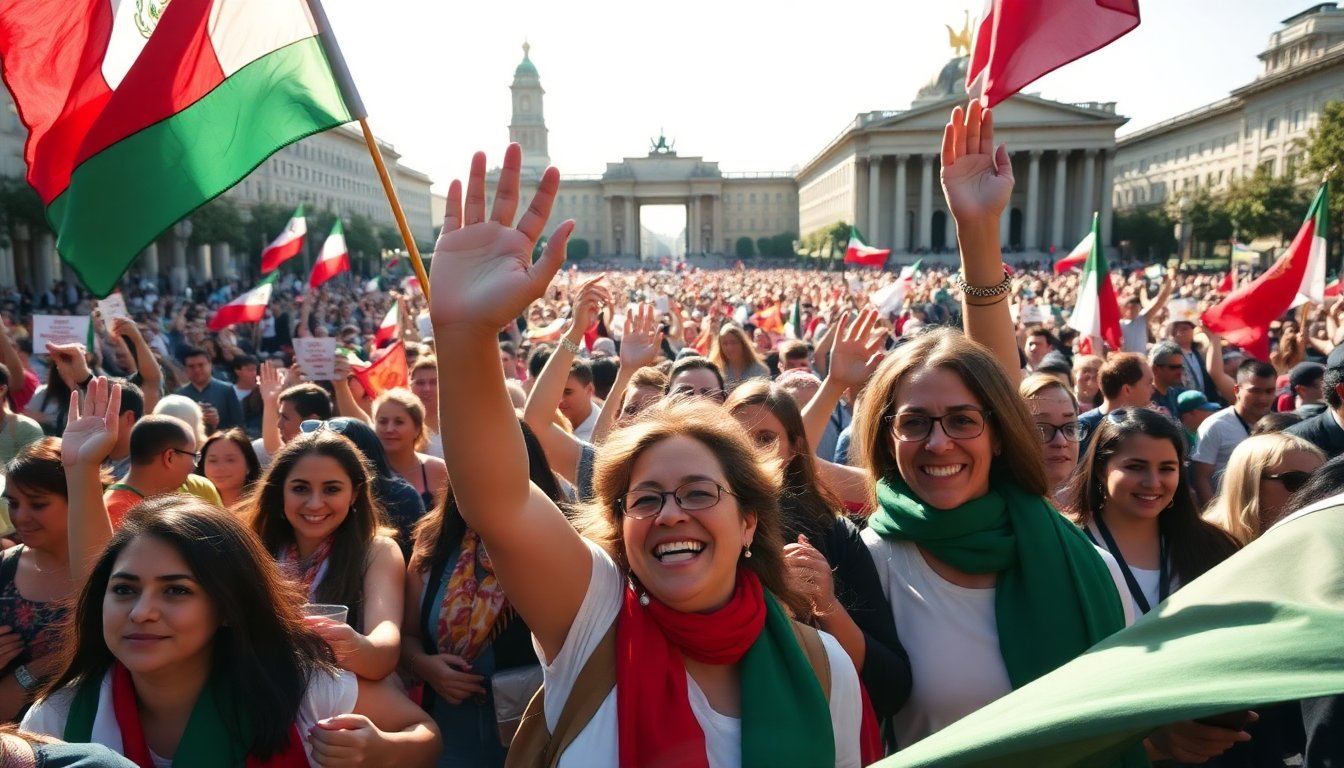Table of Contents
In a remarkable demonstration of commitment, Maria Del Carmen Huber Guevara, 63, undertook an overnight bus journey with 60 fellow travelers to attend a rally for Claudia Sheinbaum, the President of Mexico. Leaving her home in Boca del Rio, Veracruz, at 11 p.m., she arrived in the vibrant heart of Mexico City by 6 a.m. on Sunday, eager to hear the president speak.
Among thousands gathered at Constitution Square, Huber Guevara shared her excitement for Sheinbaum, proclaiming, “She is the best because she is the first female president and truly works hard for us.” The square buzzed with enthusiasm, filled with supporters waving white flags representing Sheinbaum’s political party, the National Regeneration Movement (Morena), and white balloons that floated above the crowd.
A community’s gratitude
For Huber Guevara, the rally represented a significant personal milestone. After more than three decades in a neighborhood built on land that was once squatted, she finally received the title to her home from the administration of Claudia Sheinbaum. “Imagine living somewhere for 30 years without proof of ownership,” she remarked. “How can you not be grateful?” This sentiment resonated with the crowd, reflecting the collective feelings of many who gathered in support of the president.
Sheinbaum’s leadership amidst challenges
Claudia Sheinbaum, former mayor of Mexico City and a trained scientist in energy and climate change, has solidified her position since succeeding Andrés Manuel López Obrador, the founder of Morena. With an impressive approval rating of 70%, she confronts numerous challenges, including strained trade relations with the United States and escalating public safety concerns due to organized crime.
In her recent speech, Sheinbaum reaffirmed her dedication to the populace, declaring, “I don’t walk alone. I don’t govern alone. Our government is of the people, for the people and by the people of Mexico.” The atmosphere was imbued with optimism as she asserted that Mexico is experiencing a historic moment.
The duality of public perception
Many citizens, including Cosimo Morales Hurtado, a 73-year-old cane farmer from Veracruz, believe that Sheinbaum genuinely cares about the welfare of the underprivileged. However, some express concerns about the growing influence of her party. Morales Hurtado remarked, “Previous governments diverted funds in various ways,” emphasizing a notable distinction with Sheinbaum’s administration, which he views as supportive of agricultural producers.
Political analysts, such as Carlos Bravo Regidor, suggest that Sheinbaum’s popularity may surpass that of her government. Despite facing allegations of corruption and economic difficulties, her effective management of international relations, especially regarding the U.S.-Mexico-Canada Agreement, has enhanced her reputation as a competent leader.
Looking forward: Addressing pressing issues
In her recent address, Claudia Sheinbaum expressed optimism about securing a favorable trade deal with the United States. She also promoted a new rail project designed to connect Mexico City with several states. However, following the rally, Sheinbaum faces significant challenges, including economic issues, national security threats, and violence linked to organized crime, all of which could overshadow her presidency.
Despite government statistics indicating a decline in homicide rates, the influence of drug cartels remains strong in states like Michoacán and Jalisco. Bravo Regidor highlighted the emergence of criminal governance, a situation where the distinction between organized crime and government authority becomes increasingly blurred, complicating efforts to ensure public safety.
Opposition voices emerge
A segment of the population has voiced dissent against the leadership of Claudia Sheinbaum. A small group protesting near the Metropolitan Cathedral raised alarms about what they view as the growing authoritarianism of her administration. As they erected tents and maintained a presence, Mario Raúl Suarez, a 68-year-old protester, stated, “This is the moment for citizens to take action. We must rescue our institutions to preserve our liberty.” Their concerns highlight a wider anxiety regarding recent legislation perceived to further consolidate power within the Morena party.
In response to the criticisms from the protesters, Sheinbaum emphasized that if her government were genuinely dictatorial, public dissent would not be allowed in such a visible setting. The atmosphere remains charged as she seeks to balance both support and opposition in her governance efforts.
As Mexico reflects on its tumultuous history, particularly events like the 1968 Tlatelolco massacre, many citizens acknowledge that the essential calls for democratic reform remain unfulfilled. Amidst a backdrop of unprecedented violence, 86-year-old Quiquet Pastor Toledo expressed his concerns, stating, “My beautiful Mexico is in a bloody era, yet I remain hopeful for its potential to progress.”


